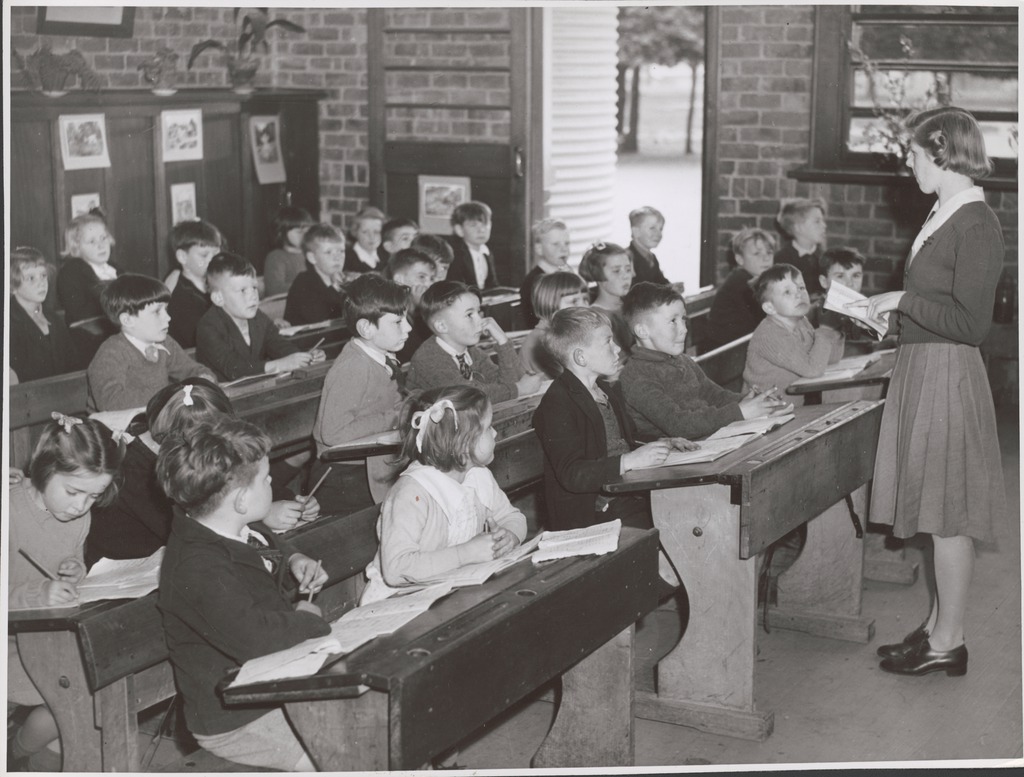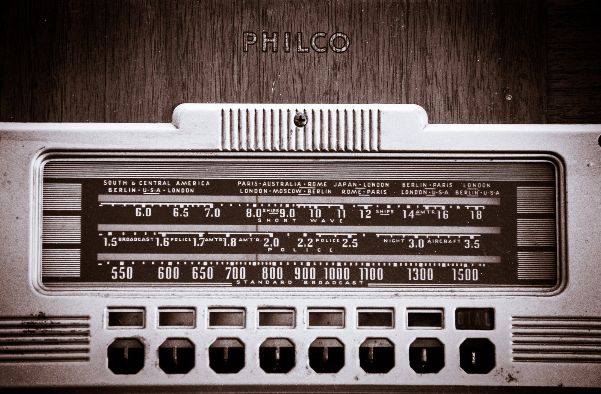

- © 2003 - 2025 Dynamix Productions, Inc. Contact Us 0



"TV gives everyone an image, but radio gives birth to a million images in a million brains."
Peggy Nooman
The recent presidential elections in Nigeria and Senegal stirred fond memories of my childhood. Specifically the "sounds" of Africa I remember growing up with. I haven't had the good fortune to go to Africa, but I've listened to it from afar. In the 1960s and 70s, radio was perhaps at its peak. AM radio stations played the hits, FM radio played the albums, and CB radios were in kitchens and cars. A lot of homes also had a shortwave radio. Today it's the internet that ties us all together. Back then, CBs connected us with our friends, AM and FM connected us with the country, and shortwave connected us with the world.
Shortwave has been around since the 1920s, and it really took off in the 1930s along with advances in technology. Ironically, as the world was being torn apart, shortwave was tying it together. The AM radio commercial broadcast band we have in our cars, also called medium wave (MW), covers 540 KHz to 1600 KHz. Shortwave (SW) starts just above that and spans 1710 KHz to 30,000 KHz. Although many countries are abandoning shortwave broadcasting in lieu of new-fangled ways of getting their message out (like the series of tubes called the interweb), some countries with large swaths of rural areas still rely on it to get news and information out to its citizens. Shortwave can travel vast distances by bouncing off the ionosphere and back down to earth repeatedly – literally "hopping" around the world. If the conditions are right, it can bounce around the globe all directions, meet up in one location, and create an echo to a lucky listener. Shortwave has limited quality and is interference susceptible, so it's best used for voice. Many veteran listeners say that the interference is much greater today because of all or our electronic devices. I can say without a doubt that's true.
As a young listener, I would sit for hours with the shortwave radio trying to tune in the most distant stations I could. Due to how AM worked, it was hard to hear a station in the next state during the day. But summer nights brought in dozens of stations with only one turn of the dial. Most of these were relatively close by, like New York, Chicago, and Havana. Signals from the western United States were more distant and a little more exciting. The foreign language stations from Central and South America upped the excitement, but I couldn't understand a thing they were saying. Sometimes if music was playing, usually something native to that country or region, it would hold my interest for a while.
Tuning in European stations, especially the BBC out of London, was usually my goal. I always loved listening to the cultured native tongue of the British - being able to understand them was a plus for a monolingual kid. I didn't care if they were talking about politics or construction on the M4, it was cool to hear they had the same issues we did here in my backyard, except they sounded hoity-toity about it. I would enjoy tuning in Berlin and listening to their choppy dialect, Paris with their suave delivery, and Oslo with their, well, Swedish accent. I would also occasionally hear China, Japan, and South Korea. Some SW enthusiasts would keep log books of distant stations they picked up. I wasn't that organized, I could barely finish my homework every night.
Also on the shortwave band were morse code transmissions, some kind of primitive data sounds, and a very weird airplane engine sound (probably a frequency being jammed). I heard shipping communications, weather reports, and the U.S. Naval Observatory time clock announcements. There were also scores of ham radio operators, many more than today. Some were clear and understandable, but most sounded like they were talking through a tuba with a clothespin on their nose. These were "sideband" communications that use less power and travel further at the expense of fidelity. My shortwave radio couldn't properly tune these so that they didn't sound like Charlie Brown's teacher. Something I've noticed for the last 40 years of occasionally listening to ham operators - and don't take this wrong if you're one - is it seems like all they talk about is how many watts their transmitter is and how big their antenna is. I'm just sayin'.
And then there was Africa. Many of the stations I listened to were in Western Africa, mostly countries with histories of British and French colonization. The huge variety of cultures brought a certain mystique to radio programs I tuned in. It was quite a score to be able to receive a broadcast from the continent. I loved the accented voices coming from an echoey room. If they were speaking English, you could hear several languages influencing the dialect. The more complex ones had their native tongue mixed with English and French. You could almost tell in which order they learned different languages.
The recent broadcasts that stirred my memories of radio from Africa was a BBC Radio News report about the presidential elections. They had pieced together various recordings of speeches and interviews from state broadcasting services. Some sounded like they were recorded in a large empty room, reminiscent of those I heard as a kid. The voices had those wonderfully complex dialects. The sounds of Africa from the 60s and 70s that I remember were very unique. They often sounded very live and reverberant instead of those from dead sounding studios I was used to hearing. I could imagine the announcer wearing a scarlet beret while seated in a wooden chair at a small table. The windowless room with light green walls would have a big silver Elvis microphone on the table with the cord snaking down the front of the table and out of sight. As soon as the announcer was done, I imagined him walking out into a densely lush landscape with happy people passing by in colorful outfits. Probably not the reality, but the depictions of Africa on television at the time probably shaped my imagination.
I was always in wonder of Africa, probably because Western society ignored it so much. Movies and television about Africa usually sensationalized violence or created stereotypes. But movies like "Born Free," TV shows like "Daktari," and nature shows like "Mutual of Omaha's Wild Kingdom" brought the wonder of the continent into our homes and stirred the imagination, albeit with white faces leading the charge. As African nations start to have bigger roles in the world economy and social consciousness, they will probably slowly abandon shortwave in favor of more modern communications technology.
State-run shortwave stations are not as popular anymore, but some countries have actually increased their worldwide shortwave presence. China has taken over traditional frequencies once used by the US, Great Britain, and Australia. They have perhaps the largest presence on SW right now. China Radio International (CRI) also is a major stakeholder in dozens of commercial and shortwave radio stations around the world, including right here in the U.S.A. CRI carefully tailors its news and programming to reflect their government policies. Pure propaganda. But don't be surprised, that's what most countries have done with long-range broadcasting almost since the beginning: World War II, the Cold War, the war in Iraq, and the current tension with North Korea. Just like the internet, there's always been all flavors of good and bad on shortwave. You just have to know where to tune to for the good stuff. I'm picking Africa.